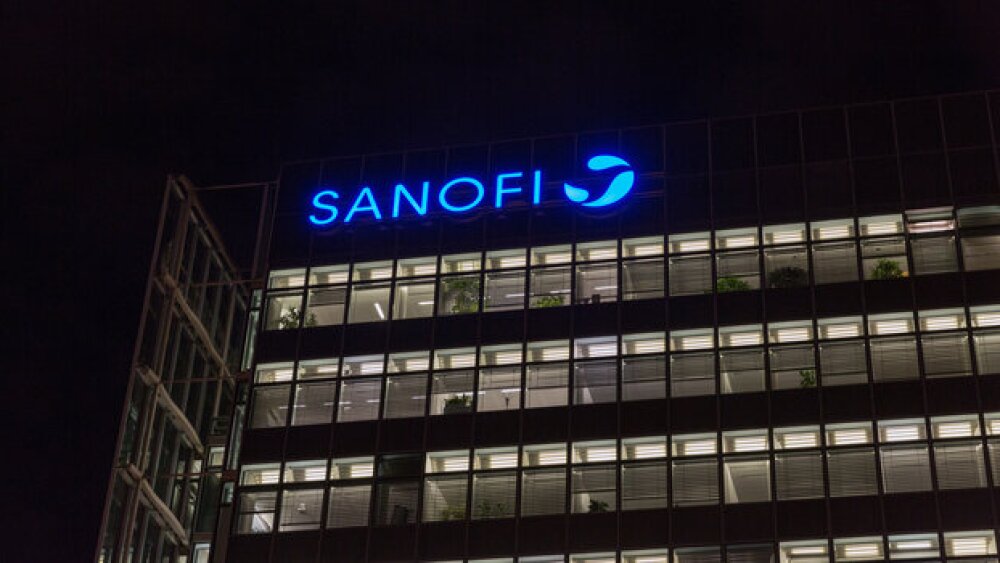The company is ending its program evaluating antibody-drug conjugate tusamitamab ravtansine after a non-small cell lung cancer trial did not meet a primary endpoint.
Pictured: Sanofi’s Germany office at night/iStock, Panama7
Sanofi is putting the kibosh on developing its antibody-drug conjugate tusamitamab ravtansine after an analysis of a Phase III readout showed it did not meet a primary endpoint in non-small cell lung cancer, according to the company’s announcement on Thursday.
The Phase III CARMEN-LC03 trial evaluated the antibody-drug conjugate (ADC) in a monotherapy setting against the chemotherapy docetaxel in non-small cell lung cancer (NSCLC) patients with tumors that had high levels of carcinoembryonic antigen-related cell adhesion molecule 5 (CEACAM5).
An independent data monitoring committee analysis found that the ADC did not reach its dual primary endpoint of progression-free survival (PFS). Despite an “improved” overall survival trend, Sanofi said it is terminating the program due to the “non-improvement” in PFS. The trial participants can stay on the therapy if benefit is seen or switch to another treatment, according to the company.
However, Sanofi is not giving up on the drug as it plans to continue to “explore” the potential of tusamitamab-based ADCs and CEACAM5 research in other cancers.
“Although the results are not what we hoped for, our research and work to advance potentially transformative therapies in areas of high unmet need for people living with cancer will not stop. We will continue to explore the potential of CEACAM5 as a biomarker in cancer types where it is highly expressed,” Sanofi CMO Dietmar Berger said in a statement.
The ADC was looking encouraging, according to a document from ASCO related to the ADC’s safety which found the adverse effects of tusamitamab ravtansine were “nonserious and reversible.” Sanofi licensed the rights to the ADC outside of China from Innovent in 2017 and expanded the agreement in 2022 to nab the rights in China and grab another one of Innovent’s assets, according to Pharmaphorum.
Sanofi has been playing in the ADC space for a number of years, as it has been inking collaboration deals since at least 2015. Last year, the French pharma secured an exclusive agreement with Seagen to develop and commercialize ADCs for cancer treatments.
The deal had Sanofi and Seagen co-funding the development activities for up to three cancer targets, with the companies splitting the profit. Sanofi also paid Seagen an unknown amount for the three targets.
Sanofi’s decision to discontinue the global clinical development program for tusamitamab ravtansine comes amid some high-profile deals in the ADC space by prominent pharma players including Pfizer, BMS, AbbVie and AstraZeneca.
Tyler Patchen is a staff writer at BioSpace. You can reach him at tyler.patchen@biospace.com. Follow him on LinkedIn.






